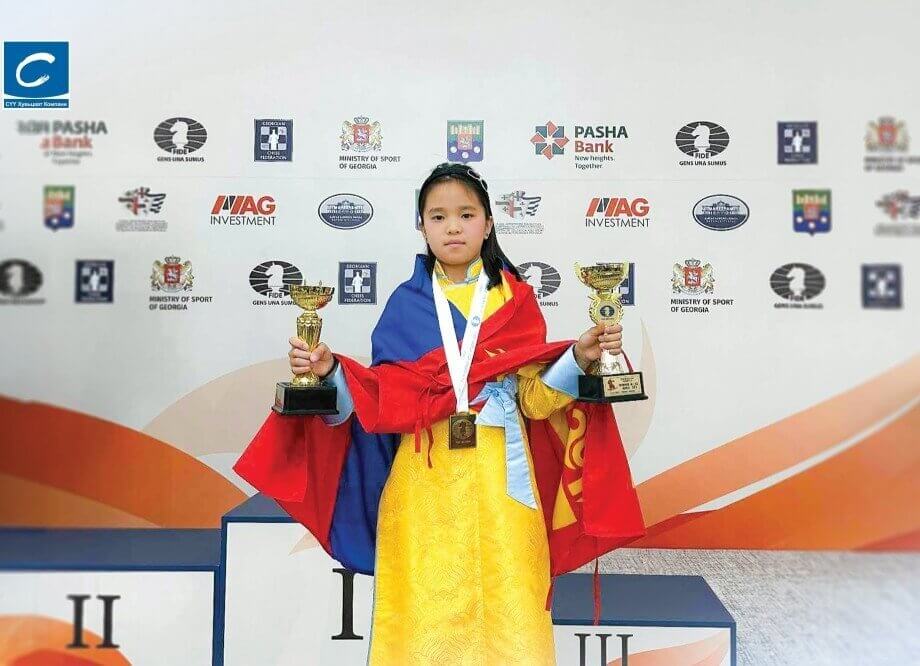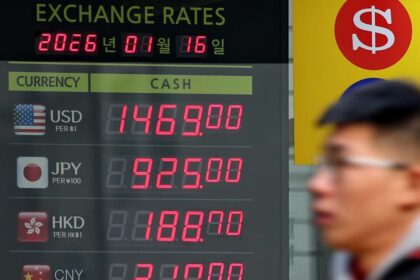Mongolia’s Rising Star: I.Tselmuun Makes Chess History at the FIDE World Junior Chess Cup
The world of chess witnessed a significant milestone for Mongolia as 12-year-old Ider Tselmuun (often listed as Idea Tselmuun in international records) clinched the bronze medal in the Girls Under-12 category at the FIDE World Junior Chess Cup, held in Batumi, Georgia. This achievement not only marks a personal triumph for Tselmuun but also represents a historic first for Mongolian chess, as she becomes the nation’s first player to win medals at both the World Junior Chess Cup and the World Cup.
- Mongolia’s Rising Star: I.Tselmuun Makes Chess History at the FIDE World Junior Chess Cup
- Inside the FIDE World Junior Chess Cup: A Global Gathering of Young Talent
- I.Tselmuun’s Journey: From Early Beginnings to International Podium
- Breaking Down the Competition: How Tselmuun Stood Out
- The Significance of Tselmuun’s Medal for Mongolian Chess
- Global Trends: The Rise of Youth Chess and India’s Dominance
- Challenges and Opportunities for Young Chess Players
- Looking Ahead: The Future of Mongolian Chess
- In Summary
The tournament, dedicated to the 100th anniversary of the International Chess Federation (FIDE), brought together over 300 young talents from 40 countries, competing across the U8, U10, and U12 age groups. Tselmuun’s performance stood out in a field dominated by traditional chess powerhouses, signaling Mongolia’s growing presence on the global chess stage.
Inside the FIDE World Junior Chess Cup: A Global Gathering of Young Talent
The FIDE World Junior Chess Cup, also known as the World Cup for Cadets, is one of the most prestigious events for young chess players worldwide. The 2025 edition, held from June 22 to July 3 in Batumi, Georgia, featured intense competition in both Open and Girls sections for each age group. Each category included 48 participants, ensuring a high level of play and international diversity.
The closing ceremony was attended by FIDE President Arkady Dvorkovich and other distinguished guests, highlighting the event’s importance in the chess calendar. The ceremony included the official FIDE anthem and a performance of the Georgian national anthem by a children’s ensemble, underscoring the cultural and international spirit of the tournament.
For many participants, the World Junior Chess Cup is more than just a competition—it is a stepping stone to future success in the chess world. The event is known for identifying future grandmasters and world champions, making every medal a significant achievement.
I.Tselmuun’s Journey: From Early Beginnings to International Podium
I.Tselmuun’s path to the podium is a story of dedication, talent, and perseverance. She began playing chess at the age of five, inspired by Mongolia’s rich tradition of board games and strategic thinking. By eight, she was already competing in her first official tournament, quickly establishing herself as a prodigy in the national chess scene.
Representing the “Bosoo Noyon” club and sponsored by “Suu” JSC, Tselmuun has become a four-time Mongolian junior chess champion. The World Junior Chess Cup in Batumi was her 13th official tournament—a testament to her rapid rise and consistent performance at both national and international levels.
In Batumi, Tselmuun played nine games, finishing with an impressive record of seven wins, one draw, and only one loss. This result secured her the bronze medal in the Girls U12 category, placing her alongside the world’s best young players and ahead of many competitors from countries with long-established chess traditions.
Breaking Down the Competition: How Tselmuun Stood Out
The Girls U12 category at the FIDE World Junior Chess Cup was fiercely contested, with top players from India, China, and other chess-strong nations vying for the podium. The final standings saw Pratitee Bordoloi (India) take gold, Dowda Aadya (India) claim silver, and I.Tselmuun (Mongolia) secure bronze.
India’s dominance in the event was widely noted, with Indian players winning seven out of the 18 medals across all categories. However, Tselmuun’s success was a standout moment, breaking the near-monopoly of larger chess nations and bringing pride to Mongolia.
Her performance is particularly remarkable given the resources and infrastructure available to young chess players in Mongolia compared to those in countries like India, Russia, or China. Tselmuun’s achievement is a testament to her personal dedication, the support of her family and coaches, and the growing chess culture in Mongolia.
The Significance of Tselmuun’s Medal for Mongolian Chess
For Mongolia, a country with a deep-rooted tradition in games of strategy such as shatar (Mongolian chess), Tselmuun’s international success is a source of national pride and inspiration. While Mongolia has produced strong chess players in the past, including grandmasters and national champions, a medal at the World Junior Chess Cup represents a new level of achievement on the global stage.
This breakthrough is expected to have a ripple effect, encouraging more young Mongolians—especially girls—to take up chess and pursue it competitively. It also highlights the importance of investing in youth development programs, coaching, and international exposure for promising players.
Chess experts and officials in Mongolia have hailed Tselmuun’s accomplishment as a turning point. Her success demonstrates that with the right support and opportunities, Mongolian players can compete with the best in the world.
Global Trends: The Rise of Youth Chess and India’s Dominance
The 2025 FIDE World Junior Chess Cup also showcased broader trends in the world of youth chess. India’s remarkable performance, with a clean sweep in the Under-10 Boys category and multiple medals in other sections, reflects the country’s sustained investment in chess education and coaching.
Pravin Thipsay, India’s third Grandmaster and a veteran coach, attributes this success to the country’s deep talent pool and the willingness of families to invest in their children’s chess careers. He notes:
“There’s stiff competition from the age group of eight. There are many playing seriously. They’re almost like professionals. For the children and their parents, travel and training fees make it a professional commitment.”
India’s rise is also linked to the proliferation of online coaching and the involvement of grandmasters in training young players. This has accelerated the learning curve for talented children, allowing them to compete at the highest levels from a young age.
While India’s dominance is clear, the emergence of players like I.Tselmuun from countries with less established chess infrastructures signals a more diverse and competitive future for the sport. The global chess community is witnessing a new generation of players who are breaking traditional boundaries and redefining what is possible.
Challenges and Opportunities for Young Chess Players
Competing at the international level presents significant challenges for young players, especially those from countries with limited resources. Travel costs, access to high-level coaching, and balancing education with competitive play are just some of the hurdles they face.
For Tselmuun, the support of her club, sponsors, and family has been crucial. Her success underscores the importance of creating pathways for talented players to access international competition and develop their skills.
As chess continues to grow in popularity worldwide, organizations like FIDE and national federations are increasingly focused on youth development. Initiatives to provide scholarships, training camps, and international exposure are helping to level the playing field and uncover new talent from unexpected places.
Looking Ahead: The Future of Mongolian Chess
Tselmuun’s bronze medal is likely to inspire a new generation of Mongolian chess players. Her story demonstrates that with passion, hard work, and the right support, it is possible to achieve success on the world stage, regardless of a country’s size or resources.
Chess clubs and schools across Mongolia are expected to see increased interest, particularly among young girls who now have a role model to look up to. The Mongolian Chess Federation and other stakeholders are likely to build on this momentum, investing in coaching, tournaments, and international exchanges to nurture future champions.
For Tselmuun herself, the future looks bright. With her talent and determination, she is well-positioned to continue her ascent in the chess world, potentially becoming one of Mongolia’s greatest chess ambassadors.
In Summary
- I.Tselmuun became the first Mongolian to win medals at both the World Junior Chess Cup and the World Cup, earning bronze in the Girls U12 category in Batumi, Georgia.
- The FIDE World Junior Chess Cup brought together over 300 young players from 40 countries, highlighting the global nature of youth chess.
- Tselmuun’s achievement is a historic milestone for Mongolia and is expected to inspire more young players, especially girls, to pursue chess competitively.
- India dominated the event, reflecting broader trends in youth chess development and the importance of early investment in talent.
- Tselmuun’s success underscores the potential for players from smaller nations to compete at the highest levels with the right support and opportunities.












